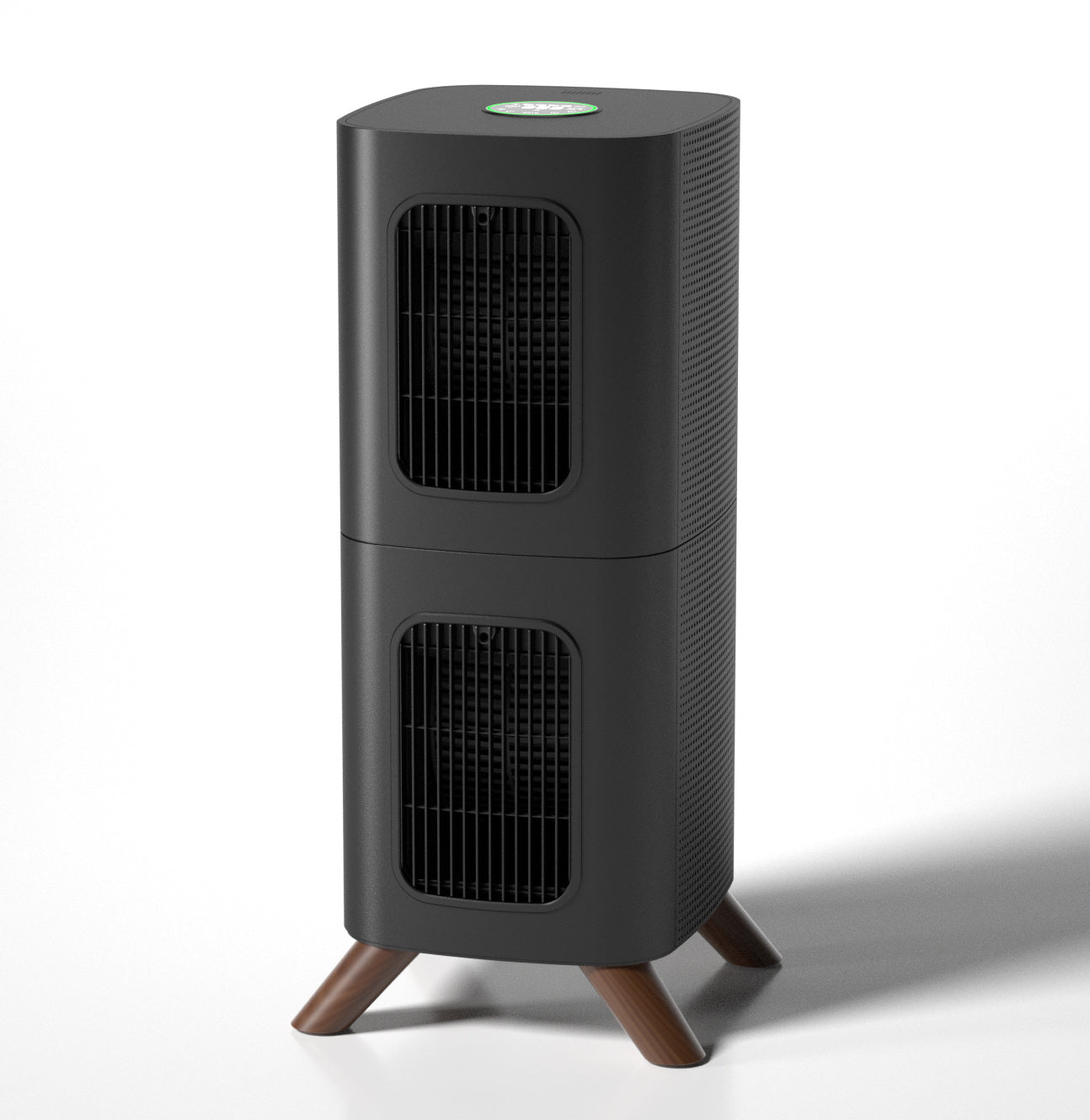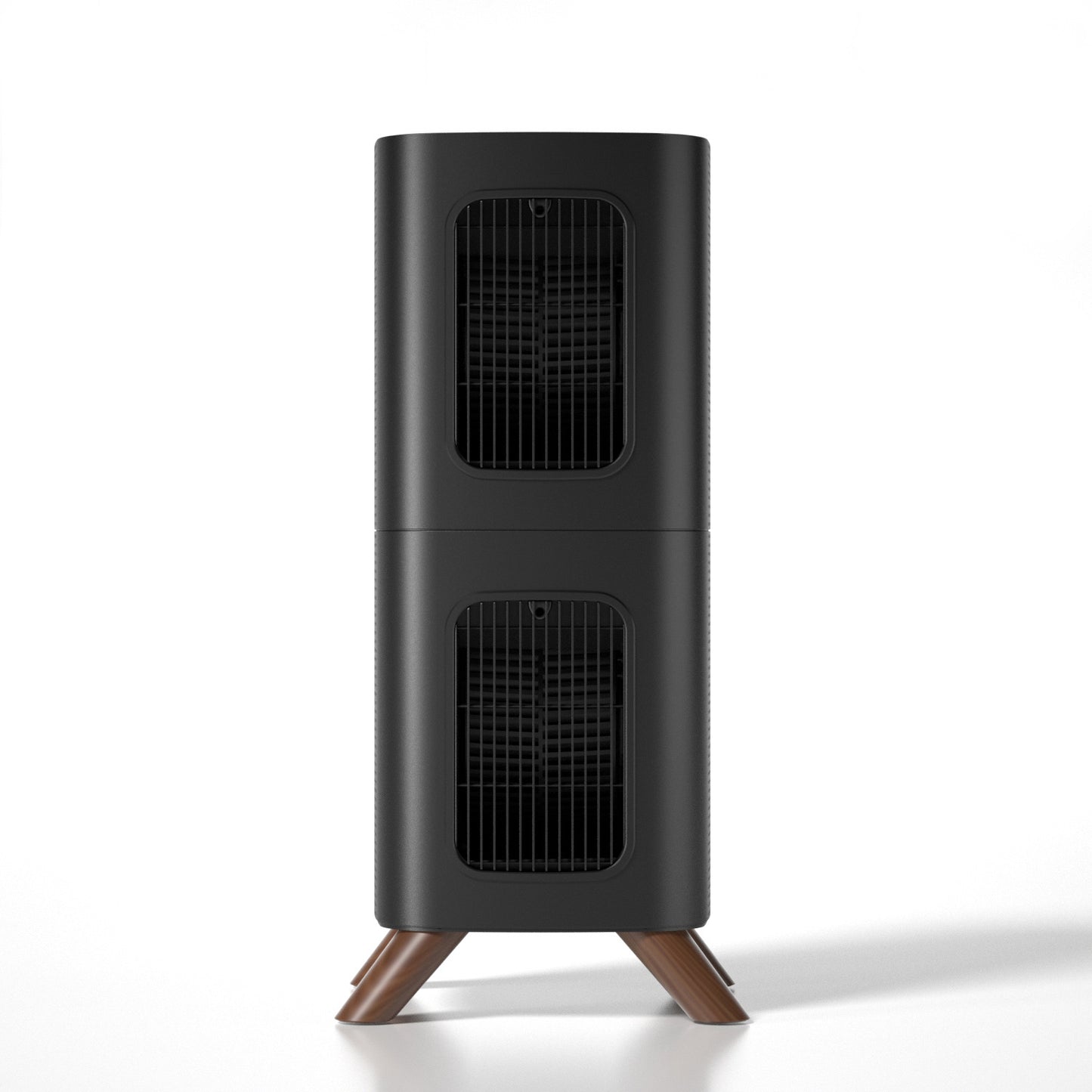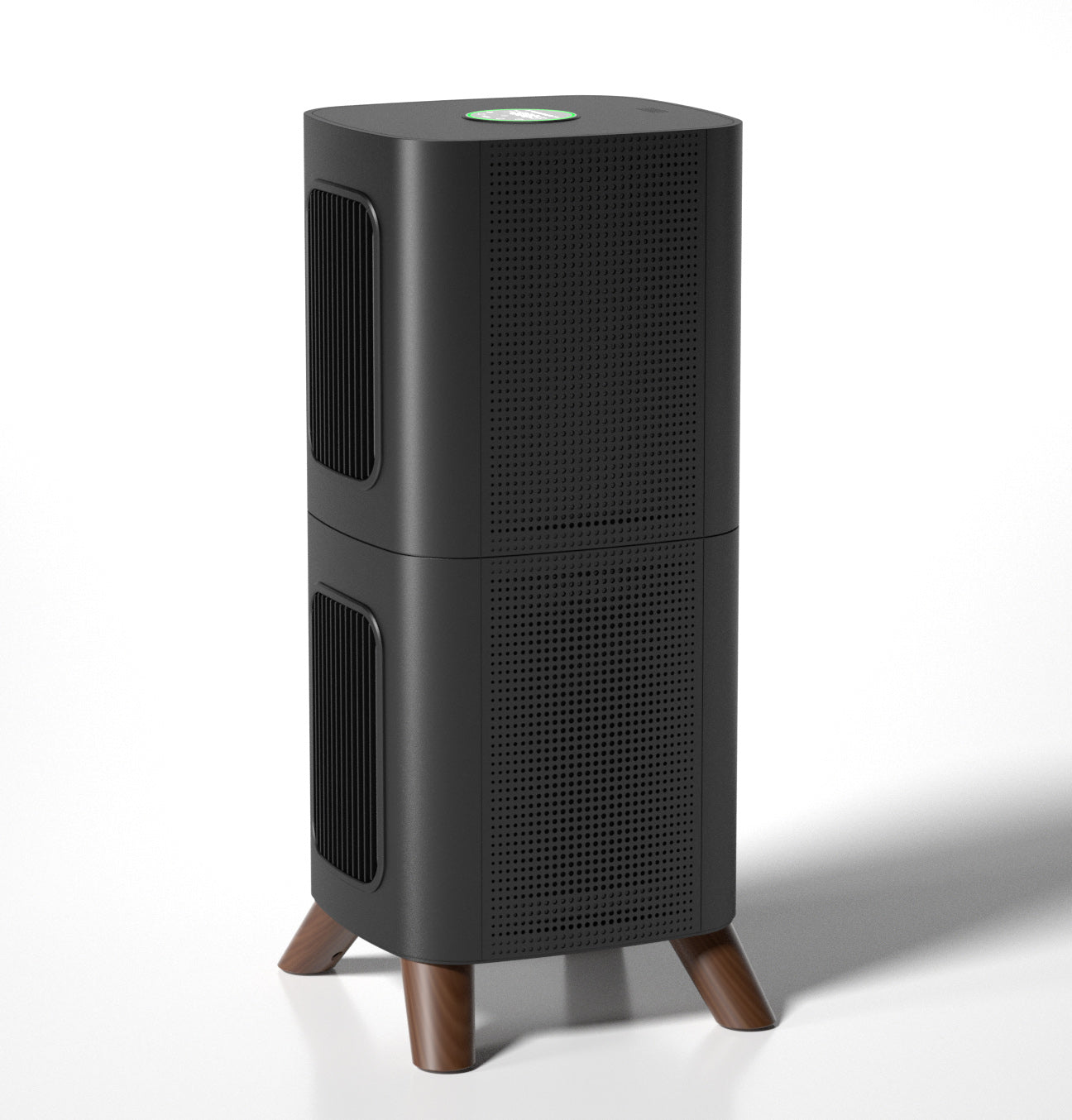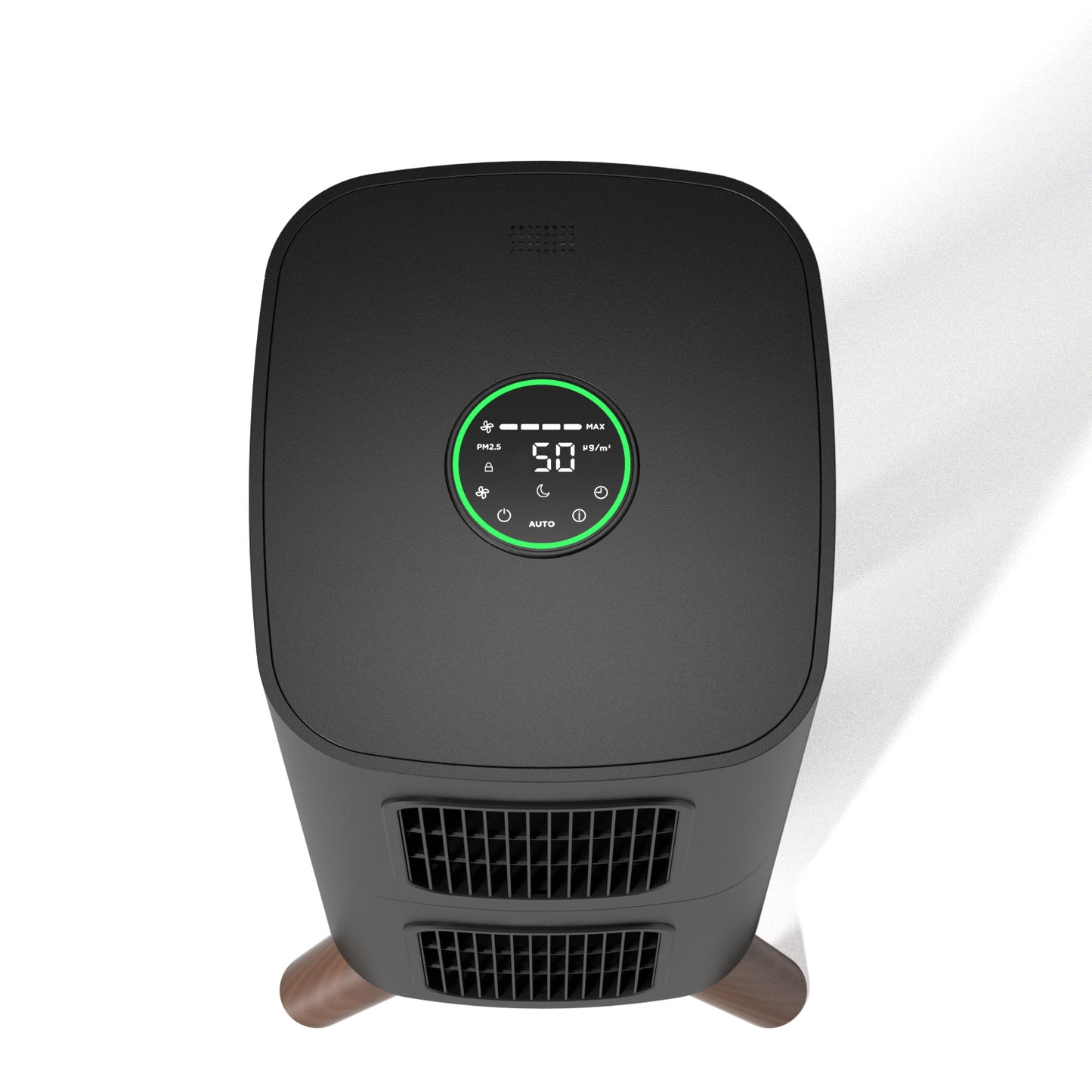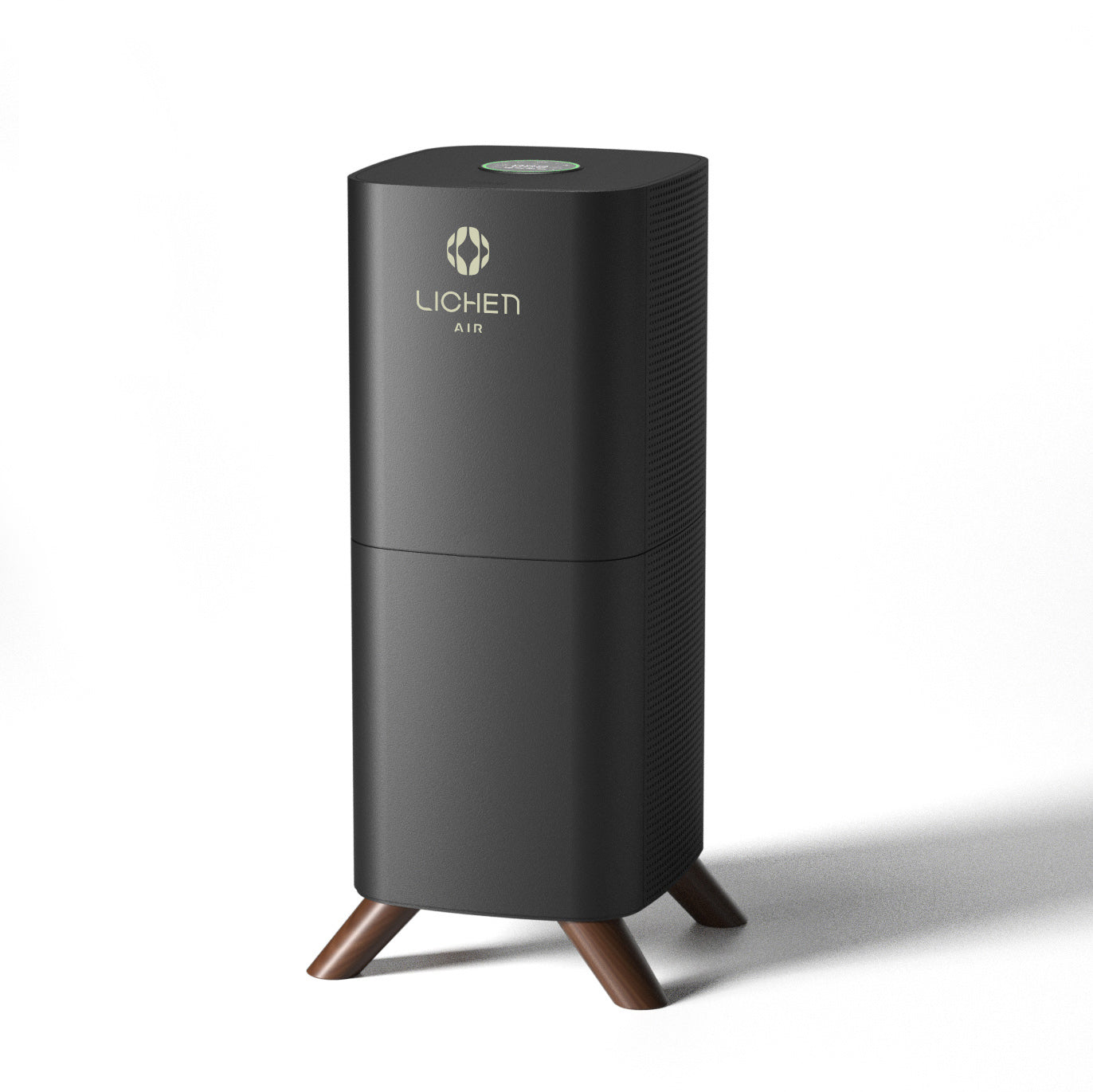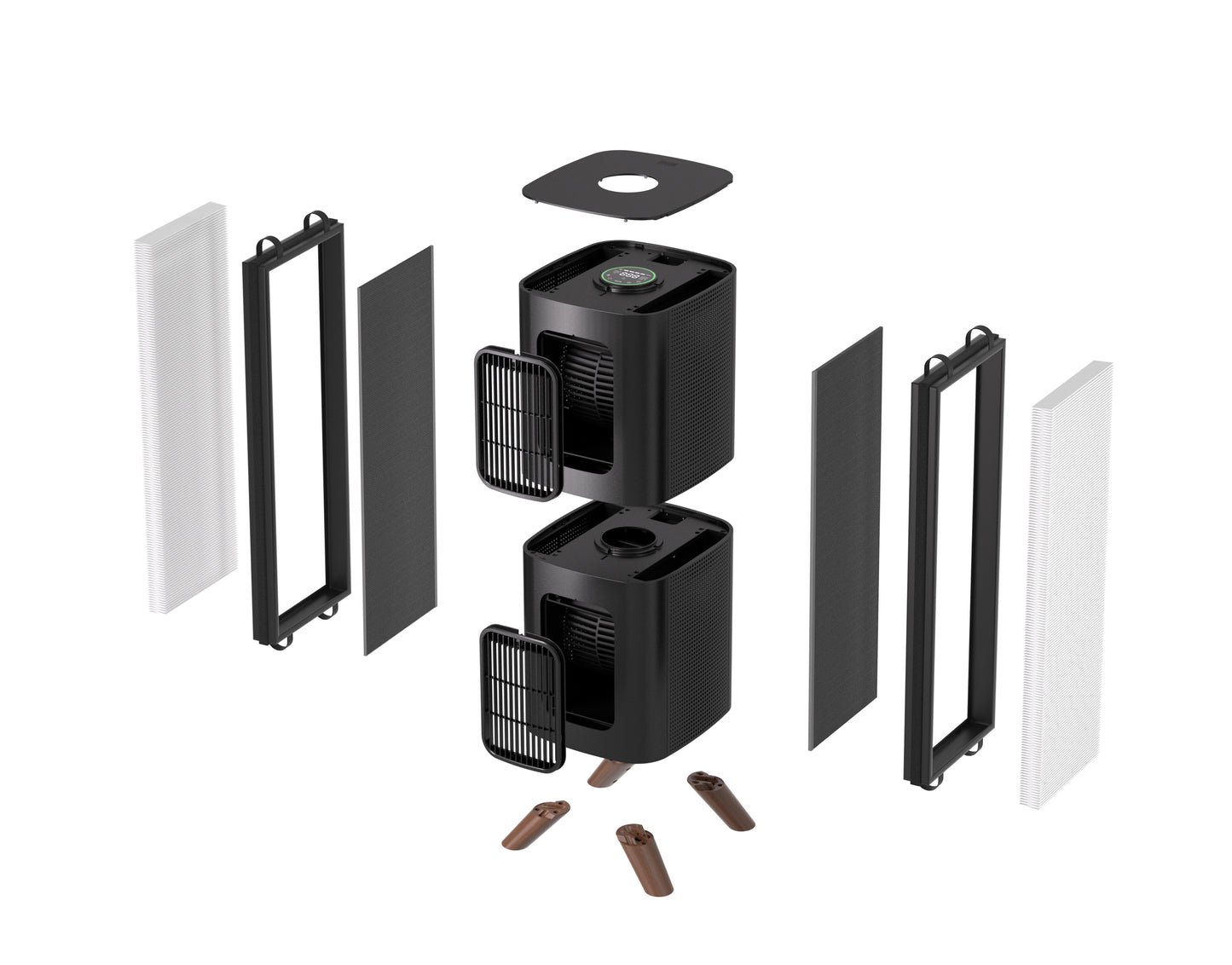
How Indoor Air Affects Sleep Quality
Share
Sleep is fundamental to our well-being, yet many people struggle with getting quality rest. While factors like stress, screen time, and diet are often discussed, one crucial yet overlooked element is indoor air quality. The air we breathe while we sleep can significantly impact sleep duration, depth, and overall health.
The Link Between Air Quality and Sleep
Good quality sleep is well-known to represent one of the most important variables as it relates to almost every aspect of our health. We know that sleep is influenced by factors like light exposure, noise levels, caffeine intake and psychological stress. But one of the most important under-represented variables that impacts your sleep is the quality of the air in your bedroom.
Improper circulation of air can compromise sleep quality. In a 2015 study, researchers tracked CO2 levels in participants’ bedrooms overnight and found that higher levels of CO2 predicted lower ability to concentrate and higher levels of sleepiness the next day.
In a powerful review of over 130,000 people from around the world, a 2021 publication in Sleep Medicine concluded that air pollution could contribute to worse sleep quality through a number of different pathways related to the brain, allergic and nonallergic mechanisms.
What are the Air Pollutants in Your Bedroom?
-Higher CO2 levels: Increased carbon dioxide from inadequate ventilation can reduce sleep efficiency and cause morning grogginess.
-Particulate Matter (PM2.5 & PM10): Fine airborne particles from dust, smoke, and a host of other sources are suspended in bedroom air and inhaled while we sleep.
-VOCs from household products: Emitted by furniture, paints, and cleaning supplies, VOCs are an emerging concern for health.
What Can You Do About It?
1. Optimize Ventilation
-Open windows periodically to circulate fresh air and reduce CO2 buildup.
-Consider an air exchange system (HVAC) if your home is tightly sealed.
2. Invest in Air Purification: A 2022 double-blinded trial tested whether air filtration using an air purifier improved sleep quality. Half of the participants had a purifier with a HEPA filter, while the other half used one with a placebo filter. Researchers concluded that people using the HEPA filter increased their time asleep by 12 minutes per night.
3. Choose higher-quality materials
-Opt for low-VOC paints, furniture, and cleaning products in your home, and don’t keep any unnecessary high-VOC products in your bedroom!
-Wash bedding frequently to remove allergens and dust mites.
4. Keep Your Bedroom Clean
-Vacuum with a HEPA-filtered vacuum cleaner.
-Use allergen-proof bedding to reduce exposure to dust mites.
-Keep pets out of the bedroom if allergies are a concern (although we fully understand this may be the least practical of all the tips!)
The Bottom Line:
Improving indoor air quality isn’t just about comfort—it’s about better sleep and overall health. By reducing airborne pollutants and allergens, optimizing ventilation, and investing in air purification, you can create a sleep environment that promotes deep, restorative rest. If you've been struggling with sleep, start by assessing the air quality in your bedroom—it could be the missing link to waking up refreshed.


